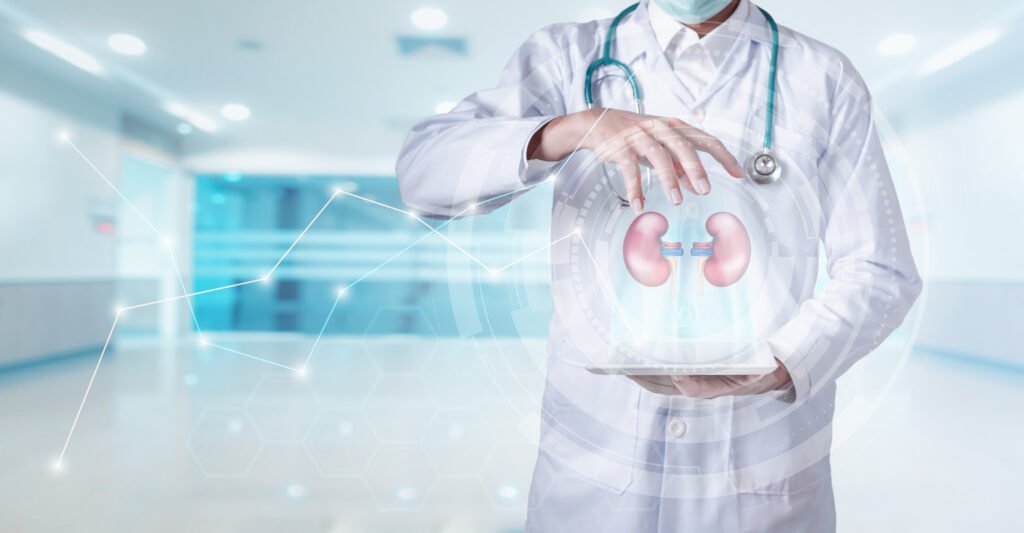Hypertension and Its Impact on Kidney Health: A Guide to Protecting Your Kidneys
Hypertension, also known as high blood pressure, is a silent but serious condition that can have devastating effects on kidney health. The kidneys, essential organs responsible for filtering waste and balancing fluids in the body, are highly susceptible to damage from elevated blood pressure. In this article, we’ll delve into how hypertension affects kidney health, the symptoms of kidney damage, and actionable steps you can take to protect these vital organs.
How Does Hypertension Affect the Kidneys?
High blood pressure puts extra strain on the delicate blood vessels in the kidneys, known as nephrons. These nephrons work tirelessly to filter your blood, but when exposed to constant high pressure, they can suffer irreversible damage. Over time, this can lead to chronic kidney disease (CKD) or even kidney failure.
Key Effects of Hypertension on the Kidneys:
- Blood Vessel Narrowing: Elevated blood pressure causes the blood vessels in the kidneys to narrow or harden, reducing their ability to filter blood effectively.
- Glomerulosclerosis: This condition involves scarring of the kidneys’ filtering units, further impairing their function.
- Hormonal Imbalance: Damaged kidneys lose their ability to produce hormones like renin, exacerbating blood pressure issues.
Symptoms of Hypertension-Related Kidney Damage
One of the challenges in diagnosing kidney damage caused by hypertension is the lack of early symptoms. However, as the condition progresses, you may notice:
- Swelling in the legs, ankles, or feet due to fluid retention.
- Changes in urination, such as increased frequency, foamy urine, or reduced urine output.
- Fatigue and weakness, result from toxin buildup in the blood.
Regular blood pressure and kidney function tests (like GFR and urine albumin levels) are essential for early detection.
Preventive Measures to Protect Kidney Health
Preventing kidney damage from hypertension requires a combination of lifestyle adjustments and medical management. Below are steps you can take:
1. Adopting a Kidney-Friendly Diet
- Follow the DASH Diet (Dietary Approaches to Stop Hypertension), which includes fruits, vegetables, lean proteins, and whole grains.
- Limit sodium intake to reduce blood pressure levels.
- Stay hydrated, but consult your doctor about fluid intake if you already have CKD.
2. Regular Physical Activity
- Engage in at least 30 minutes of moderate exercise daily to maintain healthy blood pressure levels.
3. Stress Management
- Incorporate relaxation techniques like meditation and yoga into your routine to lower stress-induced blood pressure spikes.
4. Medical Management
- Take medications like ACE inhibitors or ARBs as prescribed to control blood pressure and protect kidney function.
- Monitor blood pressure at home with a reliable device.
5. Avoid Risky Habits
- Avoid smoking and limit alcohol consumption, as these can worsen hypertension and kidney health.
Global Impact of Hypertension on Kidney Health
Did you know that hypertension is the second leading cause of kidney failure globally, after diabetes? Millions of people around the world live with chronic kidney disease, often without realizing it. By understanding the connection between hypertension and kidney health, we can take steps to raise awareness and reduce the prevalence of kidney-related complications.
Hypertension and Its Impact on Kidney Health: Taking Action Today
The effects of hypertension on kidney health are profound, but they are not inevitable. By adopting a healthy lifestyle, managing your blood pressure, and getting regular check-ups, you can protect your kidneys and prevent chronic kidney disease. Early intervention is key, so don’t wait—take charge of your health today.



